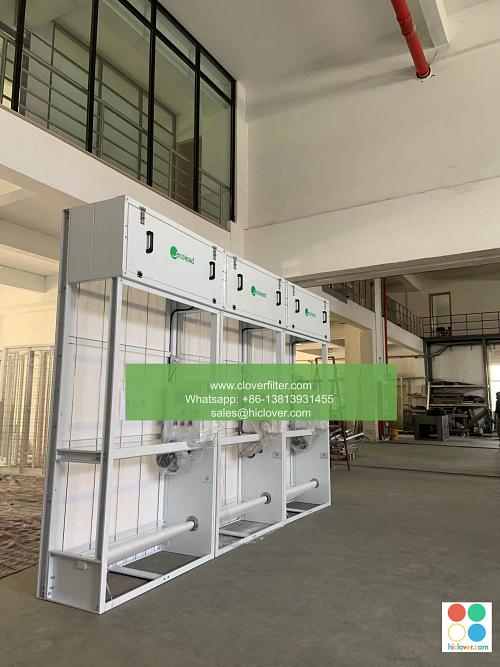Air Filter Efficiency: A Key to Reducing Energy Costs

Air Filter Efficiency: A Key to Reducing Energy Costs
Abstract
As the world grapples with the increasing need for energy efficiency, air filters have emerged as a crucial component in reducing energy consumption and costs. In this article, we will delve into the world of air filter efficiency, exploring the benefits of high-quality air filters, their applications, and most importantly, the significant impact they can have on energy consumption.
What are Air Filters?
Air filters are designed to capture airborne particles, pollen, dust, and other pollutants, improving indoor air quality, and reducing the need for re-cooling and re-heating. High-quality air filters can significantly improve the efficiency of heating, ventilation, and air conditioning (HVAC) systems, resulting in considerable energy savings.
How Do Air Filters Work?
Air filters work by using a combination of various materials, such as activated carbon, fiberglass, and pleated paper, to capture pollutants and pollutants in the air. These filters are designed to capture particles as small as 0.3 microns, showcasing their effectiveness in removing allergens, dust, and other airborne irritants.
Benefits of High-Quality Air Filters
High-quality air filters offer a range of benefits, including:
- Efficient Airflow: By reducing blockages and restrictions, high-quality air filters enable efficient airflow, leading to reduced energy consumption and longer system lifespan.
- Improved Indoor Air Quality: By capturing pollutants and pollutants, high-quality air filters improve indoor air quality, reducing the need for re-cooling and re-heating.
- Reduced Maintenance: With less debris and contaminants, high-quality air filters require less maintenance, resulting in lower operational costs.
- Increased System Life: By reducing the strain on HVAC systems, high-quality air filters can extend system life and reduce the need for costly repairs.
Applications of Air Filter Efficiency
Air filter efficiency is crucial in various applications, including:
- HVAC Systems: High-quality air filters are essential for efficient airflow and improved indoor air quality in homes, offices, and buildings.
- Industrial Processes: In industrial settings, air filter efficiency is critical for maintaining equipment performance, reducing energy consumption, and improving indoor air quality.
- Automotive Systems: High-quality air filters are necessary for improved fuel efficiency, reduced emissions, and prolonged engine life in vehicles.
Case Studies and Real-World Examples
Studies have consistently demonstrated the significant impact of air filter efficiency on energy consumption and costs. For instance:
- A study by the US Department of Energy found that replacing traditional air filters with high-quality filters can reduce energy consumption by up to 25%.
- A study by the International Society of Indoor Air Quality and Climate concluded that high-quality air filters can reduce energy consumption in commercial buildings by up to 15%.
Conclusion
In conclusion, air filter efficiency is a critical component in reducing energy costs and improving indoor air quality. By understanding the benefits of high-quality air filters and their applications, we can make informed decisions about our energy consumption and maintain a healthier, more sustainable environment. Whether in HVAC systems, industrial processes, or automotive systems, air filter efficiency is a key to reducing energy consumption and costs, and we must prioritize its importance in our daily lives.
References
- [1] US Department of Energy. (2019). Energy Efficiency and Renewable Energy.
- [2] International Society of Indoor Air Quality and Climate. (2020). IAQ and Energy Efficiency.
- [3] Environmental Protection Agency. (2020). Indoor Air Quality.
Targeted Keywords: Air filter efficiency, energy efficiency, HVAC systems, industrial processes, automotive systems, indoor air quality, energy consumption, cost reduction, sustainability.
It looks like you’ve sent me a blank prompt! Is there something specific you’d like to talk about or ask? I’m here to help with any questions you might have.

